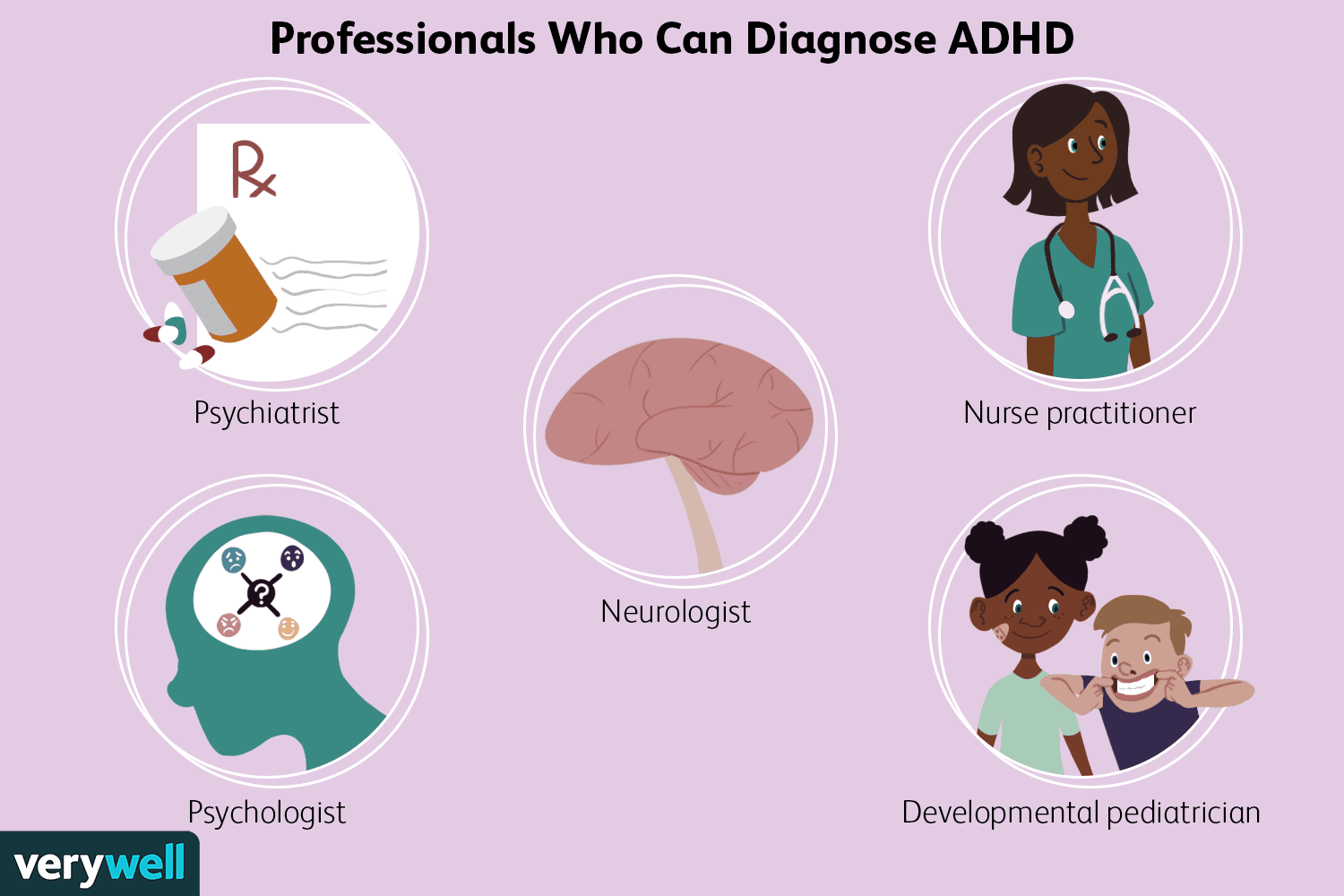Understanding ADHD: The Importance of Taking an ADHD Test
Are you struggling to stay focused? Do you find it challenging to complete tasks or follow instructions? If so, you may have heard of Attention Deficit Hyperactivity Disorder (ADHD). ADHD is a neurodevelopmental disorder that affects both children and adults, making it difficult to pay attention, control impulsive behaviors, and manage hyperactivity levels.
Understanding ADH’D is crucial for individuals who suspect they may be experiencing symptoms. One of the first steps in obtaining a diagnosis is taking an ADHD test. In this blog post, we will delve into the importance of undergoing an ADHD test and explore who should consider taking one. So let’s dive in and uncover the world of ADHD testing!
Understanding ADHD
ADHD, or Attention-Deficit/Hyperactivity Disorder, is a neurodevelopmental disorder that affects both children and adults. It is characterized by persistent patterns of inattention, hyperactivity, and impulsivity that can impact daily functioning.
Inattention refers to difficulties focusing on tasks or activities, often leading to forgetfulness or being easily distracted. Hyperactivity manifests as excessive restlessness or constant fidgeting. Impulsivity involves acting without thinking about the consequences.
It’s important to note that ADHD is not just a result of laziness or poor parenting—it is a real medical condition with biological underpinnings. Research suggests that genetics and brain structure differences contribute to its development.
Moreover, ADHD can significantly affect various aspects of life such as academic performance, relationships, and work productivity. Understanding the symptoms and impacts of ADHD can help individuals seek appropriate support and treatment options tailored to their specific needs.
By gaining knowledge about this disorder, we can foster empathy towards those affected by it and promote an inclusive society where people with ADHD are understood rather than stigmatized.
Importance of Taking an ADHD Test
Understanding ADH’D is essential for individuals who may be experiencing symptoms such as inattentiveness, hyperactivity, or impulsivity. However, it can often be challenging to determine whether these behaviors are a result of ADH’D or simply typical characteristics of one’s personality. This is where the importance of taking an ADH’D test comes into play.
By undergoing an ADH’D test, individuals can gain clarity and insight into their behavior patterns and cognitive functioning. It allows them to obtain a formal diagnosis from qualified professionals who specialize in assessing and treating ADH’D. This diagnosis not only validates their experiences but also opens up opportunities for tailored treatment plans and support systems that can significantly improve their quality of life.
Taking an ADH’D test is especially crucial for children who may exhibit disruptive behaviors at school or have difficulty focusing on tasks. Identifying the presence of ADH’D early on enables parents, educators, and healthcare providers to implement appropriate interventions to help manage symptoms effectively. Additionally, adults who suspect they may have undiagnosed ADH’D can benefit from taking a test as it provides them with guidance on managing their symptoms in different areas of life such as work or personal relationships.
It’s important to note that accurate assessment tools are used during an ADHD test by trained professionals such as psychologists or psychiatrists. These tests take various factors into account, including behavioral observations, self-reporting questionnaires, medical history assessments, and interviews with family members or close associates. The comprehensive nature of these assessments ensures reliable results that inform proper diagnosis and subsequent treatment options specific to each individual’s needs.
Who Should Take an ADHD Test
Who should take an ADH’D test? This is a common question for individuals who suspect they or someone they know may have attention deficit hyperactivity disorder. While it’s important to consult with a medical professional for an accurate diagnosis, there are some key indicators that may suggest the need for an ADH’D test.
Children and adolescents who exhibit persistent patterns of inattention, impulsivity, and hyperactivity should be considered for testing. These behaviors can significantly impact their daily functioning and academic performance. It’s crucial to identify these symptoms early on to provide appropriate interventions and support.
Adults who struggled with similar symptoms during childhood but were not diagnosed may also benefit from taking an ADH’D test. Many individuals go undiagnosed until adulthood when their difficulties with focus, organization, time management, and impulse control become more apparent in work or personal settings.
Additionally, individuals who experience ongoing challenges related to attention span, executive functioning skills (such as planning and problem-solving), emotional regulation issues like frequent mood swings or irritability should consider seeking out assessment through an ADHD test.
Remember that only a qualified healthcare professional can make a definitive diagnosis of ADHD. If you or someone you know exhibits any of these signs or struggles mentioned above consistently over time across different environments such as home, school/workplace – it may be worth discussing the possibility of undergoing an evaluation with your doctor or specialist
Accuracy of ADHD Tests
When it comes to diagnosing attention deficit hyperactivity disorder (ADHD), accuracy is key. The effectiveness of an ADH’D test can greatly impact the outcome and subsequent treatment options. So, how accurate are these tests?
1. Clinical Assessments:
Clinical assessments conducted by trained professionals, such as psychologists or psychiatrists, are considered the gold standard for diagnosing ADH’D. These assessments typically involve a comprehensive evaluation that includes interviews with both the individual and their family members, behavioral observations, and cognitive testing.
2. Rating Scales:
Rating scales are commonly used in conjunction with clinical assessments to gather information about an individual’s behaviors and symptoms related to ADHD. While rating scales provide valuable insights, they should not be solely relied upon for a definitive diagnosis as they may have limitations due to subjective interpretation.
3. Objective Testing:
Objective testing methods like continuous performance tests (CPT) measure an individual’s ability to sustain attention over time through computer-based tasks. These tests can provide objective data regarding attention deficits but should also be interpreted in context with other assessment measures.
4. Combination Approach:
The most reliable method for accurately diagnosing ADH’D involves using a combination of different assessment tools and techniques mentioned above. This multidimensional approach helps ensure a more comprehensive understanding of an individual’s symptoms and functioning.
While these tests aim for accuracy in diagnosis, it is essential to consult with healthcare professionals who specialize in assessing and treating ADH’D before making any conclusions based on test results alone!
Treatment Options for ADH‘D
1. Medication: One of the most common treatment options for ADHD is medication. Stimulant medications, such as Ritalin or Adderall, can help to improve focus and reduce impulsivity in individuals with ADHD. These medications work by increasing the levels of certain chemicals in the brain that are responsible for regulating attention and behavior.
2. Behavioral Therapy: Another effective treatment option is behavioral therapy. This type of therapy focuses on teaching individuals with ADHD new coping skills and strategies to manage their symptoms. It may involve techniques such as setting goals, creating routines, improving organizational skills, and managing time more effectively.
3. Parent Training: Since ADHD often affects children, parent training programs can be beneficial for both parents and children alike. These programs provide education about ADHD and teach parents how to better understand their child’s behavior, set appropriate boundaries, and implement consistent discipline strategies.
4. Supportive Interventions: In addition to medication and therapy, there are other supportive interventions that can help individuals with ADHD thrive. These may include accommodations at school or work (such as extra time on tests or assignments), assistive technology tools (such as reminder apps or noise-cancelling headphones), and support groups where individuals can connect with others who have similar experiences.
Remember that it’s important to consult a healthcare professional before pursuing any specific treatment option for ADHD as they will be able to provide personalized recommendations based on your individual needs.
Online ADH‘D Tests
In today’s digital age, the internet has made it easier than ever to access information and resources. This includes online ADHD tests, which provide a convenient option for individuals who suspect they may have attention deficit hyperactivity disorder. These tests can be completed from the comfort of one’s own home, eliminating the need for in-person appointments and long waiting times.
One advantage of online ADH’D tests is their accessibility. With just a few clicks, anyone can find various websites offering free or low-cost assessments. These tests typically consist of questionnaires that assess symptoms commonly associated with ADHD. By answering these questions honestly, individuals can gain insight into whether their symptoms align with those of ADH’D.
Another benefit of online ADH’D tests is the convenience they offer. Whether you’re a busy professional or a parent juggling multiple responsibilities, finding time to schedule an appointment with a healthcare professional might be challenging. Online tests allow you to complete them at your own pace and on your own schedule – no need to rearrange your day or take time off work.
However, it’s important to note that while online ADHD tests can provide preliminary indications of potential ADH’D symptoms, they are not diagnostic tools. A positive result on an online test should not replace a comprehensive evaluation by a qualified healthcare professional who specializes in diagnosing and treating ADH’D.
Frequently Asked Questions about ADHD
ADHD, or Attention Deficit Hyperactivity Disorder, is a condition that affects both children and adults. It’s a topic surrounded by many questions and misconceptions. Let’s address some of the frequently asked questions about ADHD.
1) What are the common symptoms of ADH’D?
The symptoms of ADHD can vary from person to person, but typically include difficulty paying attention, impulsivity, hyperactivity, forgetfulness, and trouble organizing tasks. It’s important to note that not everyone with ADHD will exhibit all of these symptoms.
2) Can adults have ADHD too?
Yes! While it is often associated with childhood behavior problems, ADHD can persist into adulthood. In fact, many individuals are not diagnosed until later in life when their symptoms become more noticeable in work or personal relationships.
3) Is there a cure for ADHD?
Currently, there is no cure for ADHD. However, there are several effective treatment options available that can help manage the symptoms and improve daily functioning. These may include medication therapy, behavioral interventions such as counseling or coaching sessions,
4) Are online tests reliable for diagnosing ADHD?
Online tests can provide some insight into potential symptoms of ADHD. But should not be used as a definitive diagnosis tool. It’s always best to consult with a healthcare professional who specializes in mental health assessments to get an accurate diagnosis.
Conclusion
Understanding ADHD and the importance of taking an ADHD test is crucial for both children. And adults who may be experiencing symptoms. By getting an accurate diagnosis, individuals can access appropriate treatment options that will help them manage their symptoms effectively.
Remember, ADHD is a real condition that affects millions of people worldwide. It’s not something to be ashamed of or ignored. Taking an ADHD test can provide valuable insights into one’s cognitive function and overall well-being.
If you suspect you or your loved ones have ADHD symptoms, don’t hesitate to seek professional help. Consult with healthcare professionals or mental health experts who specialize in diagnosing and treating ADHD. They will guide you through the process of taking an ADHD test . And offer personalized care based on your unique needs.
It’s important to understand that while online tests may offer some preliminary guidance. They should not replace a comprehensive evaluation by qualified professionals. Be cautious when relying solely on online assessments as they might not provide accurate results.
There are various treatment options available for managing ADHD, including behavioral therapy, medication, lifestyle changes, and support groups. With the right tools and support system in place. Individuals with ADHD can lead fulfilling lives with improved focus, organization skills,
So take that first step towards understanding yourself better by considering an ADHD test if you suspect any symptoms. By doing so, you’re empowering yourself to take control of your life and embrace strategies.That will enable you to thrive despite any challenges posed by this condition.







